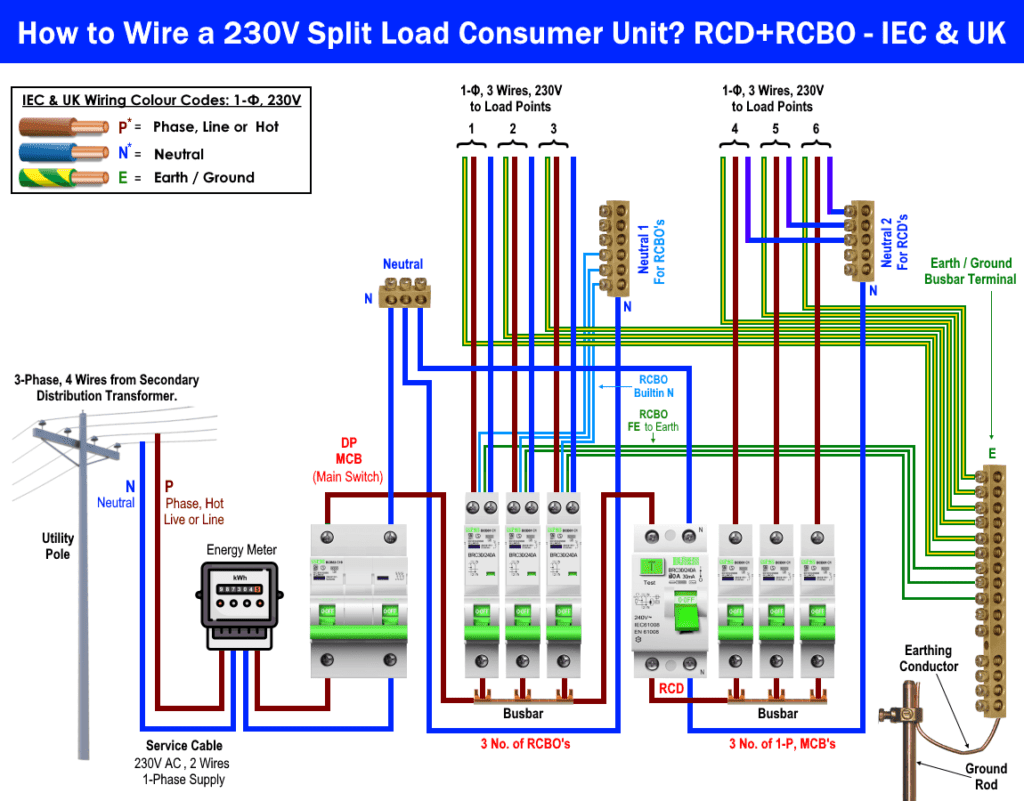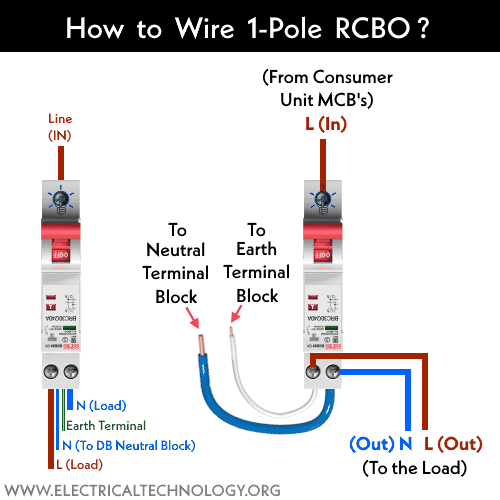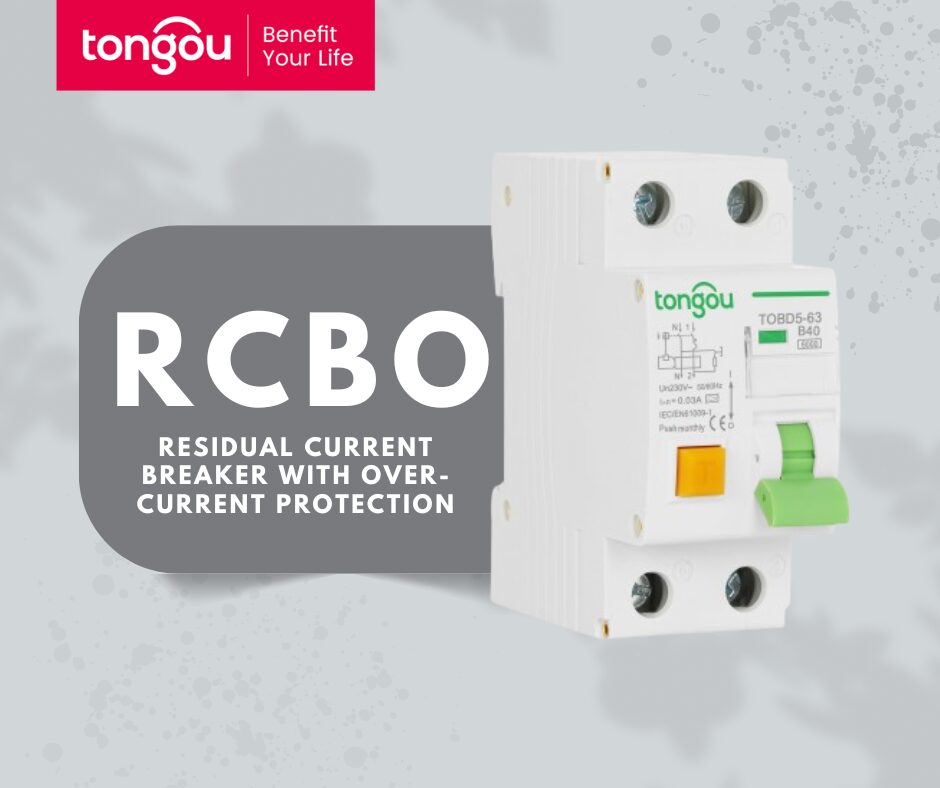Top Notch Info About When To Use RCBO Vs MCB

RCBO vs. MCB
1. Understanding the Basics
Ever stared at your electrical panel, feeling like you're deciphering hieroglyphics? You're not alone! Those mysterious MCBs and RCBOs might seem intimidating, but understanding the difference can actually save you a headache — or even more. Let's break down these circuit protection devices without getting too technical.
Think of MCBs (Miniature Circuit Breakers) as the workhorses of your electrical system. They're designed to protect against overloads and short circuits. Imagine plugging too many appliances into one outlet, causing the circuit to draw more current than it's designed for. An MCB will trip, cutting off the power and preventing a potential fire. They are like the bouncers for your circuits, making sure no one overstays their welcome and causes trouble!
RCBOs (Residual Current Circuit Breakers with Overcurrent protection), on the other hand, are the superheroes of personal safety. They do everything an MCB does — protect against overloads and short circuits — but they also detect earth leakage. Earth leakage happens when electricity strays from its intended path, often through a person. It's a potentially lethal situation, and an RCBO is designed to react incredibly quickly, tripping the circuit in milliseconds to prevent electric shock. Think of them as a super-sensitive guardian angel for your electrical system.
So, essentially, the main difference is that RCBOs offer an extra layer of protection against electric shock that MCBs simply don't provide. MCBs are vital for protecting your wiring and appliances, but RCBOs are crucial for protecting you.

When to Choose an RCBO
2. Prioritizing Protection
The golden rule? Always prioritize safety. RCBOs are generally recommended in situations where there's a higher risk of electric shock. Think about areas with water or where people might be in direct contact with electrical appliances. Bathrooms, kitchens, and outdoor outlets are prime candidates for RCBO protection. Consider any circuit that supplies power to portable equipment like lawnmowers or power washers. The additional safety they offer makes them well worth the investment.
Specifically, regulations often mandate RCBO protection for circuits supplying sockets that could be used to power equipment outdoors. It's also common practice, and often best practice, to use RCBOs on circuits supplying lighting in bathrooms and kitchens, even if not explicitly required by code. Ultimately, the decision of when and where to install RCBOs depends on a risk assessment, balancing the cost with the level of protection desired.
Another scenario where RCBOs shine is in circuits supplying sensitive electronic equipment. While an MCB will protect against overloads, it won't react to minor earth leakage currents that could damage delicate electronics. An RCBO will trip at a much lower current level, potentially saving your expensive gadgets from frying. So, if you have a home office full of computers or a high-end entertainment system, RCBOs are a smart choice.
While older installations may rely solely on MCBs, upgrading to RCBOs offers significant benefits in terms of safety and peace of mind. Many modern homes are now wired with RCBOs on all circuits, providing comprehensive protection throughout the property. Its also good practice when doing any electrical work to see if you can upgrade the breakers.

Why Use RCBO Instead Of MCB? TONGOU
When MCBs Might Be Sufficient (and Cost-Effective)
3. Balancing Budget and Protection
Okay, let's be realistic. RCBOs are generally more expensive than MCBs. In some situations, particularly in older installations or in circuits that are not considered high-risk, MCBs might still be sufficient. For example, a circuit supplying a dedicated lighting circuit in a dry area, where there's little chance of contact with water or other conductive materials, might not necessarily require RCBO protection.
Think about a garage workshop with clearly labelled circuits. If the circuits are dedicated to equipment that is well-maintained and inspected regularly, and if there's a clear understanding of electrical safety practices, an MCB might provide adequate protection against overloads and short circuits. However, even in these situations, the added safety of an RCBO is worth considering, especially if the workshop is used by multiple people.
It's important to remember that regulations vary depending on your location. Building codes often specify minimum requirements for electrical safety, and these requirements may dictate the use of RCBOs in certain situations. Always consult with a qualified electrician to ensure that your electrical system complies with local regulations and provides adequate protection for your specific needs. They can help you assess the risks and choose the right type of circuit protection for each circuit in your home or business.
Ultimately, the decision of whether to use an MCB or an RCBO is a balancing act between cost, risk assessment, and regulatory requirements. While RCBOs offer superior protection against electric shock, MCBs can still provide adequate protection against overloads and short circuits in certain situations. Always prioritize safety, and when in doubt, consult with a qualified electrician.

How To Wire An RCBO? Residual Current Breaker With Overcurrent
Installation Considerations
4. Leave it to the Pros
This is crucial: messing with electrical systems can be dangerous, even fatal, if you don't know what you're doing. Replacing an MCB with another MCB might seem straightforward, but replacing an MCB with an RCBO, or installing new circuits, requires a thorough understanding of electrical wiring, grounding, and safety regulations. This is definitely not a DIY project for the average homeowner!
A qualified electrician will not only be able to safely install RCBOs and MCBs, but they can also assess your existing electrical system to ensure that it's properly grounded and that all wiring is in good condition. They can identify potential hazards that you might miss and recommend upgrades to improve the overall safety of your electrical system. They will also be able to test the new RCBOs to make sure they are working correctly.
Before any work begins, a good electrician will discuss your needs and explain the options available. They will provide a clear and transparent quote, outlining the costs of materials and labor. They will also be able to answer any questions you have about electrical safety and provide advice on how to maintain your electrical system.
Trying to save a few bucks by doing electrical work yourself is simply not worth the risk. Electrocution, fires, and damage to your property are just some of the potential consequences. Hiring a qualified electrician is an investment in your safety and peace of mind. Think of it as paying for expertise and ensuring that the job is done right the first time. Plus, any work done by a certified electrician will usually be guaranteed.

How To Wire An RCBO? Residual Current Breaker With Overcurrent
The Future of Circuit Protection
5. Innovations and Trends
The world of circuit protection is constantly evolving, with new technologies and innovations emerging all the time. One trend is the increasing use of smart circuit breakers that can be monitored and controlled remotely. These smart breakers can provide real-time data on energy consumption, detect potential problems before they cause a fault, and even be tripped remotely in case of an emergency.
Another area of innovation is in the development of more sensitive and reliable RCBOs. Manufacturers are constantly working to improve the speed and accuracy of earth leakage detection, as well as to reduce the likelihood of nuisance tripping (when an RCBO trips for no apparent reason). This means greater levels of protection with fewer interruptions.
We're also seeing the integration of circuit protection with smart home systems. Imagine a system that automatically shuts off power to a circuit if it detects a water leak or a fire. This level of integration could significantly enhance safety and prevent property damage. Also a growing demand for DC (Direct Current) breakers due to the rise of renewable energy, like solar panels, and electric vehicle charging, DC breakers are becoming a common sight in homes and businesses.
The future of circuit protection is all about making our electrical systems safer, more efficient, and more connected. As technology advances, we can expect to see even more innovative solutions that protect us from electrical hazards and help us manage our energy consumption more effectively. So, keep an eye on developments in the field — it's a field that directly impacts your safety and your home!

Why Use RCBO Instead Of MCB? TONGOU
Frequently Asked Questions (FAQ)
6. What's the lifespan of an MCB or RCBO?
A good quality MCB or RCBO can last for many years, often exceeding 10 years or more, provided they're not subjected to frequent tripping or other stresses. However, it's advisable to have your electrical system inspected periodically by a qualified electrician, who can check the condition of your circuit breakers and recommend replacements if needed. Think of it as a preventative maintenance check-up for your home's electrical system.
7. Can I replace an MCB with an RCBO myself?
No, unless you are a qualified and licensed electrician. Electrical work can be dangerous, and incorrect installation can lead to electrocution, fire, or damage to your property. It's always best to leave electrical work to the professionals.
8. Are RCBOs required by code everywhere?
Electrical codes vary depending on location. Some jurisdictions mandate RCBO protection for certain circuits, such as those supplying bathrooms, kitchens, and outdoor outlets. Others may have less stringent requirements. Consult with a qualified electrician or your local building inspector to determine the specific requirements in your area. They will be able to provide guidance on the best practices for electrical safety in your home or business.